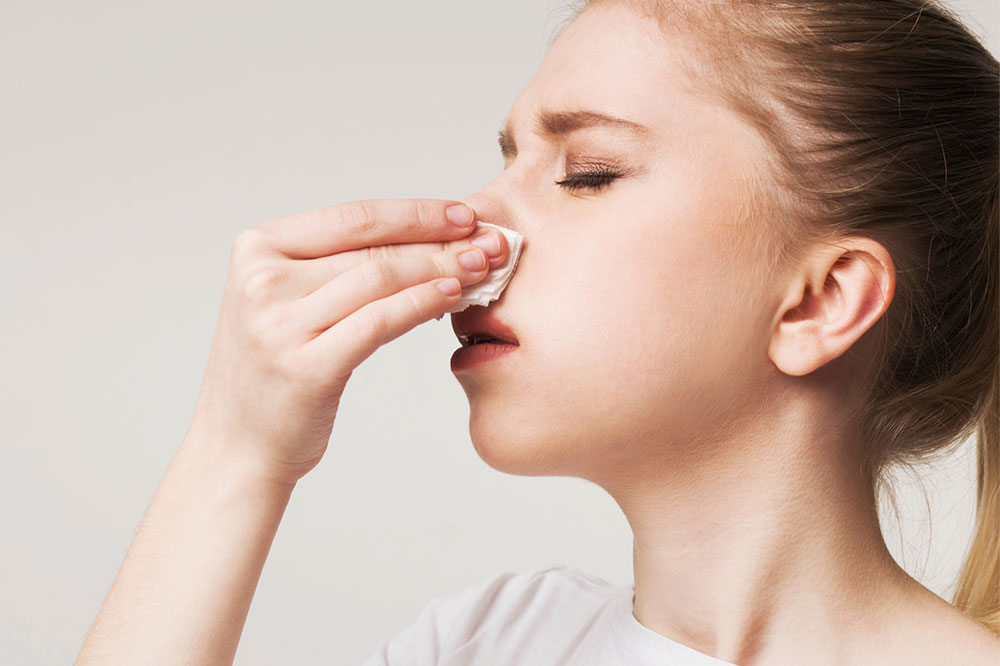Nasal polyps: Symptoms, home remedies and more

Nasal polyps are soft, benign growths that occur on the inner linings of the nasal passages, otherwise known as sinuses. In some cases, these polyps can grow incredibly large and cause breathing problems and other complications. Moreover, they can also lead to different kinds of frequent infections if not treated on time. These are often observed in people who have asthma, a recurring infection, allergies, or other similar disorders.
Symptoms
Small nasal polyps can often go unnoticed since they do not affect one’s quality of life in any way. Polyps are only diagnosed when they grow to be considerably large and cause blockages in the nasal pathways. Nasal polyps also lead to chronic sinusitis that can often be diagnosed through symptoms like a runny and stuffy nose, poor sense of smell, headache and pain in the facial muscles, and frequent nosebleeds. If a person starts having trouble breathing or they experience swelling around the eyes and double vision, they must immediately consult a doctor.
Risk factors of nasal polyps
Although nasal polyps can occur in any individual in their 30s or 40s, there are certain health conditions that make people more vulnerable to nasal polyps. These are conditions that cause long-term irritation and swelling in the nasal passages and restrict breathing. Asthma is one of the most common health conditions associated with nasal polyps. Other conditions include cystic fibrosis, Churg-Strauss syndrome, and health concerns, like aspirin sensitivity and vitamin D deficiency. It is also noted that people with a family history of nasal polyps are more likely to develop them sometime in their life.
Foods that help prevent nasal polyps
People who are suffering from asthma or certain allergies, as well as those with a family history of nasal polyps are more vulnerable to developing the condition. There are certain foods that can help prevent the growth of nasal polyps in such individuals. Foods that are rich in beta carotene and vitamin A, such as carrots and beetroot help protect the inner linings of the nasal pathways and prevent inflammation. It is also important to consume omega-3 fatty acids by including salmon, walnuts, and flaxseeds in the food regime. Moreover, foods like cherries, broccoli, and red onions are packed with antioxidants called bioflavonoids, which scavenge free radicals, and thus, help prevent nasal polyps.
Treatment options
When diagnosed in the early stages, the polyps are smaller in size and may often be shrunk or treated with the help of prescription steroid sprays or oral medications. Other treatment methods include nonprescription saline sprays or antibiotics to prevent any infection that may accompany chronic rhinosinusitis with nasal polyps. Since people suffering from asthma or allergy-related breathing disorders are more likely to develop nasal polyps, they are prescribed certain medications that help treat allergy or asthma-related symptoms. If the condition is severe, these medications may not completely get rid of the polyps, but they may shrink the size to allow comfortable breathing. However, nasal polyps can only be removed through surgical means.
Home remedies
Aside from the medications prescribed, there are also a few home remedies that soothe the symptoms of chronic sinusitis. Nasal irrigation using a sterile saline solution can help get rid of congestion and any infection. One can use a neti pot for this process, which can be found at any local store. Other home remedies include tea tree oil and inhalation of mild steam to help clear the nasal pathways. Regular household ingredients such as cayenne pepper, chamomile, ginger, and garlic can be used to reduce certain symptoms and prevent further inflammation. Cayenne pepper contains a compound called Capsaicin, which is almost as effective as a nasal spray in reducing inflammation. Ginger and garlic are known for their antimicrobial properties, and thus, help fight off infections and reduce inflammation. Chamomile, eucalyptus, and peppermint are also helpful in reducing inflammation and preventing any adverse allergic reactions. Nasal irrigation using a sterile saline solution can help get rid of congestion and any infection. A neti pot can be used for this process.